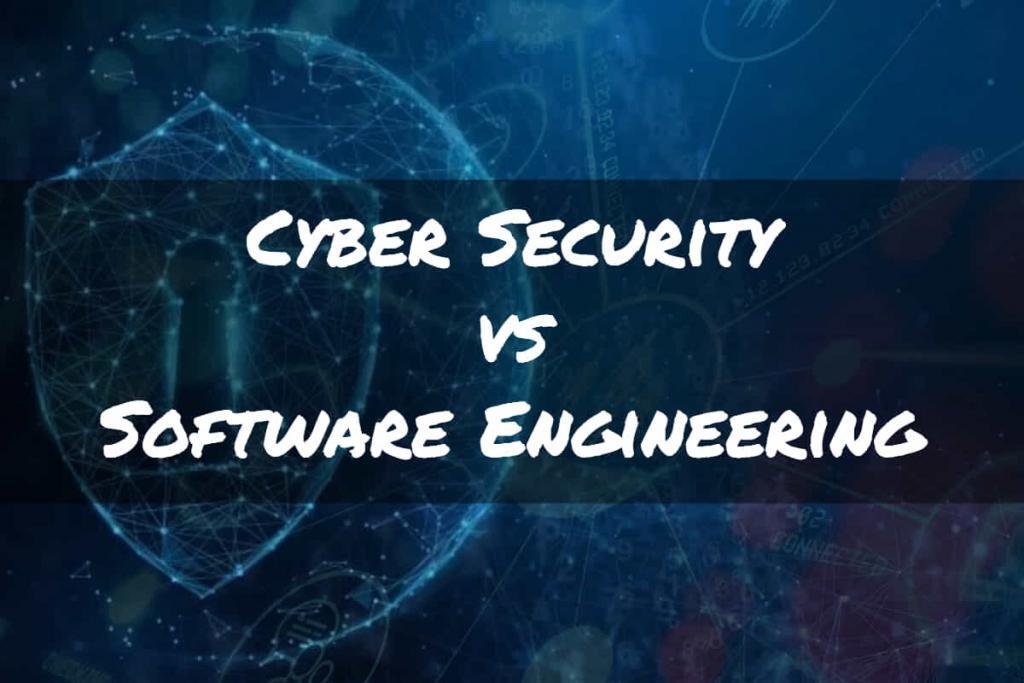Is cyber security right for me? As a rule, cyber security is right for anyone. For example, you enter a password to login into a web application, expect privacy when you talk on Google Meet or Zoom, and only forward emails to people that have a “need to know”, etc.
All of these are examples of cyber security (or information security). The question is, do you want to apply these in a more formal environment and turn them into a career?
Table of Contents
Is cyber security right for me? Click below to find out!
Would I Be Good at Cyber Security?
Why Is Cyber Security a Good Career?
How Is Cyber Security as A Career?
Is Cyber Security Easy or Is Cyber Security Hard?
Do You Need a Degree to Work in Cybersecurity?
How Can I Start a Career in Cyber Security?
Is It Easy to Get a Cyber Security Job?
Where to Learn Cyber Security?
Is A Career in Cybersecurity Worth It?
Would I Be Good at Cyber Security?
Yes, of course you would be good at cyber. The great thing is that cyber security is one of the few industries that’s found in every sector of the global economy.
Each industry has something specific to contribute to cyber; meaning, it’s not a one size fits all industry.
And it’s an industry that employs people from all backgrounds because of the intense need for a diverse set of skilled labor.
For instance, the healthcare industry has specific HITRUST or HIPAA security requirements to ensure that patient data is kept confidential. This makes it a great opportunity for people in the medical field that already have this knowledge.
So, it doesn’t matter if you’re coming from IT, healthcare, or even HVAC; you would still be great at cyber security.
Why Is Cyber Security a Good Career?
Cyber security is a very good career option if you’re seriously considering it.
If you’ve ever thought about security, then you probably already know that it’s a booming field with many opportunities to fill.
But you do need to ask yourself what interests you about cyber security? Look at a few points to consider:
Opportunity. Now is the time to make the leap into the cyber industry! There are thousands of open positions and not enough people to fill them. According to CyberSeek there are only enough workers to fill roughly 2/3rds of the jobs available on the market today. That still means approximately 250,000 jobs are still yet waiting to be filled!
Money. It’s okay if your real interest is money. As you’ve probably heard by now, you can make a lot of money in cyber security and very quickly. In just a few short years (~3 years), you can easily make over $100,000.
Growth. Even though money may be what you’re really after, growth should be at the forefront of your mindset. Money will only motivate you so far, but it’s your need to grow that will push you to excel towards cyber. Because of the high level of demand, you can move up very quickly in the early years of your career. It won’t take long for you to move from IT Support to Junior Cyber Analyst to Senior Analyst in the same amount of time.
So, if someone asks, “Why did you choose cyber security?” You can now talk about opportunity and growth, in addition to money!
How Is Cyber Security as A Career?
A career in cyber security is an excellent choice. But just as in any industry, there are pros and cons:
Pay
As we previously mentioned, cyber security professionals can earn a high salary. According to the Bureau of Labor Statistics, the median salary in 2021 for the position of information security analyst is $102k.
Stability
There’s a vast amount of opportunity available in the industry. And, since the job outlook is only expected to grow over the next ten years, there’s also a good chance that your job isn’t going away anytime soon. Luckily, it takes longer for a newcomer to learn the ropes of your position, so you’re in a good spot!
Promotion
Unless you’re aiming for a specific title, such as penetration tester, there’s usually good growth opportunity within the industry. In as little as five years, you can make your way to become a cyber security manager with the pay to match.
Benefits
Although benefits are company dependent, you might be able to ask for a few extra days of PTO (Paid Time Off), remote work opportunities, paid training or mentorship opportunities, etc. This is especially true if the company has been searching a while for a good hire and is willing to negotiate.
Work Life Balance
It’s generally common in the industry for people to work well over forty-hour weeks, and with strict deadlines. The main reason here is that staffing shortages, being commonplace, require others to pick up the slack. That means, if a project is due Monday morning, be prepared to have working lunches and meetings as well as saying goodbye to your weekend plans.
Training
Training is a big part of security. That’s because the industry is always on the lookout for new hackers, threats, and vulnerabilities. There’s always going to be some new tool, technology, or perspective that must be learned and integrated into your thought process. This is where maintaining your “continuing professional education” credits (CPEs) for renewal of your certification makes sense.
Burnout
Another common occurrence is cyber burnout. Due to the limited budgets, staffing shortages, long working hours, intense workloads, quick deadlines, and demanding clients; burnout becomes a reality. As a result, employer turnover is much higher. You may even experience coworkers leaving a company, then coming right back a few years later. If you can handle the imperfect work-life balance, training requirements, and withstand the stress, then cyber security might be right for you.
Is Cyber Security Easy or Is Cyber Security Hard?
I’ve just discussed some of the pros and cons in the section above. Other than that, I guess it depends on what your definition of easy and hard is, and to what are you referring? Nothing worth doing well is ever that easy or that hard; in the end, it really just depends on you dedication.
For a deeper answer to your question read, Is Cyber Security Hard?
When most people ask that question, what they really want to know is, “How quickly can I earn a living in cyber security?”
There’s no absolute answer to that question, but there are things you can do to shorten that time span. Read the next section below to figure out how you can start.
How Can I Start a Career in Cyber Security?
Now, if you’re wondering where to start with cyber security, then the first thing that every single newcomer should do is immediately start studying for the CompTIA Security+ exam.
This is the most entry level certification and provides a basic understanding of what you need to know for cyber security.
You’ll find that many security professionals possess this very basic, entry-level certification.
Then, as you’re studying for the exam, view some of the job descriptions to understand what companies are looking for and try to learn some of what’s being requested.
Afterwards, you can read my article about How to Get into Cyber Security with No Experience?
Do You Need a Degree to Work in Cybersecurity?
Students and those in other professions, often have questions regarding cyber security educational requirements.
Let’s look at several questions related to obtaining a cyber security degree.
Do You Need a Bachelor’s For Cyber Security?
No, you don’t need a bachelor’s degree for cyber security.
Many companies are starting to understand that a bachelor’s degree isn’t as important as it once was.
Four years of experience is just as good as a bachelor’s degree and is often more prized.
Can You Get a Cyber Security Job Without a Degree?
Yes, you can get a cyber security job without a degree. In fact, having a degree as an entry level candidate can sometimes hurt your chances.
Degreed candidates are usually more expensive for the employer and offer little value in return.
That’s because an employer would rather take a chance with someone with no degree and four years of experience instead of a four-year degree and no experience.
Read Can You Get a Job in Cyber Security Without a Degree? for more information.
Do Cyber Security Jobs Require a Degree?
There are some positions that do require a degree, such as those jobs working for the federal government.
However, many companies are looking for immediate hires and don’t have the time to wait for a candidate to get their degree.
You’ll find that many job postings mention they’ll take experience in lieu of a degree.
If you have no experience, then you’ll need to get some, even if it’s six months of doing Help Desk related work.
Is Cyber Security a Good Degree?
Yes, although it’s not really needed for entry level positions, it’s a good degree to have and will certainly help you to get promoted the higher you move up in the organization.
But if you’re still on the fence, read Is a Cyber Security Degree Worth It? to find out more!
What Degree Is Best for Cyber Security?
There is no “best” degree for cyber security. If you decide to move forward with a degree, you can choose from multiple degree programs: computer science, software engineering, network engineering, cyber security, etc.
Any IT-related degree can be combined with a security certification to provide you the foundational knowledge required of cyber security.
Then What Degree Is Required for Cyber Security
You don’t need any degree for an entry-level cyber security job. Security certifications and experience are all that matter.
Even then, some professionals have so many of years of knowledge and experience, that certifications don’t really do much for them. These are people that can easily find work just with their experience alone.
What Jobs Can I Get with Cyber Security Degree?
With a cyber security degree, you can seek out any position you desire; but that doesn’t mean you’ll get a job right away. It’s your lack of experience that will hold you back.
Regardless of what type of job you want, you still need to show some aptitude for that role.
For example, if you’re interested in GRC, show some experience in NIST SP 800-53, if you’re interested in Ethical Hacking, display your knowledge of TryHackMe or other real-world scenario, etc.
Is It Easy to Get a Cyber Security Job?
That depends, if you already have a background in IT, then it’ll be a lot easier for you to get a cyber security job.
If you don’t have that experience, then you’re probably asking, “What cyber security job is right for me?” For most entry level candidates, my best suggestion to you is to start with a low-level IT Help Desk or Support role; a position that’s not even in cyber.
That way you can get some experience and then make the jump into a cyber analyst type of role.
If you’re transitioning from another career, I suggest you find a career path that aligns without your current background.
For instance, a business analyst, might have an easier time of making it to cyber analyst.
However, if you find that your background doesn’t matchup very well, you might have to take the same route as an entry level graduate.
Interested in knowing What Is The Best Job In Cyber Security?
Where to Learn Cyber Security?
Self-Study: You’ll find that many people have transitioned into cyber security by merely educating themselves. They’ve taken the time to watch the online materials, study and pass the security certifications, and sharpen their cyber skills. The best part of this method is you move at your own pace, and it’s relatively cheaper than the other two options.
Cyber Security Coursework: If you choose this route, this could mean either a workforce development course or college coursework. In either case, these are not cheap options, but they do ensure you maintain a daily regimen of cyber classwork. The benefit here, is it that it may come with assignments, lab work, projects, and you might even receive tutoring. The downside is it can take months or years for you to finish a course or degree plan, respectively.
Cyber Security Bootcamp: Bootcamps are usually designed as short-term courses that last from a few weeks to a few months. During this time, you’re crammed with all kinds of cyber knowledge (e.g. concepts, assignments or labs, and projects) mostly because you don’t have a lot of time to work with. They’re usually designed to “teach-to-the-test” of some security certification. The good ones come with a voucher or at least some guarantee and some level of tutoring, but keep in mind that bootcamps can sometimes be as expensive as a college degree.
Are Cyber Security Bootcamps Worth It? Read here to find out!
Is A Career in Cybersecurity Worth It?
That depends on your priorities in life. If you value a work-life balance or a stress-free environment, then cyber security isn’t probably going to work out for you.
On the other hand, the pay is good, and the growth potential and opportunities are great.
So now you need to ask…is cyber security worth it and is cyber security right for me?
Interested in More…
How to Become a Cyber Security Architect?
Cyber Security vs Computer Science: Know the Difference!
What Is the Best Job in Cyber Security?
The Best Method to Become a Security Auditor!



